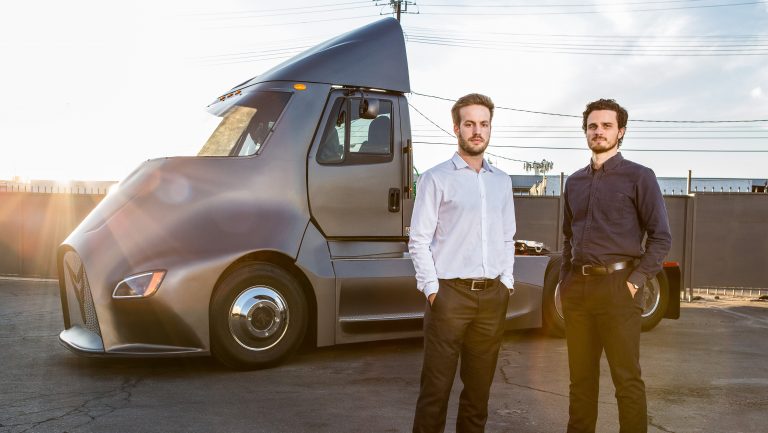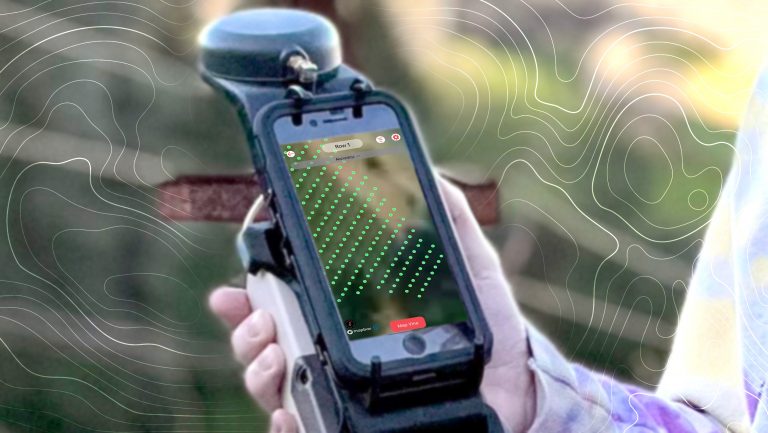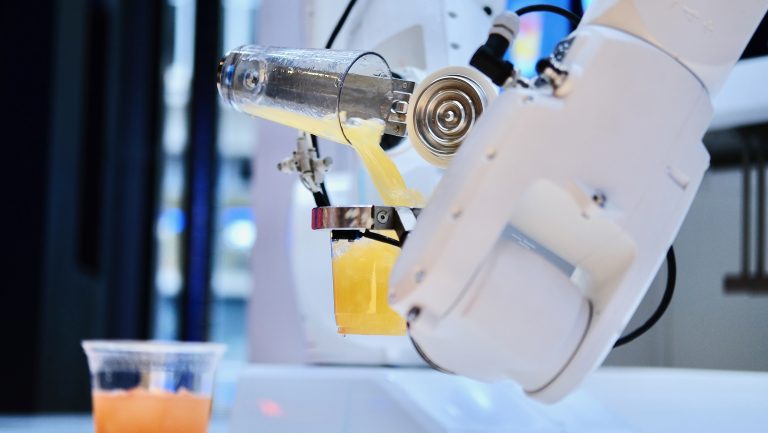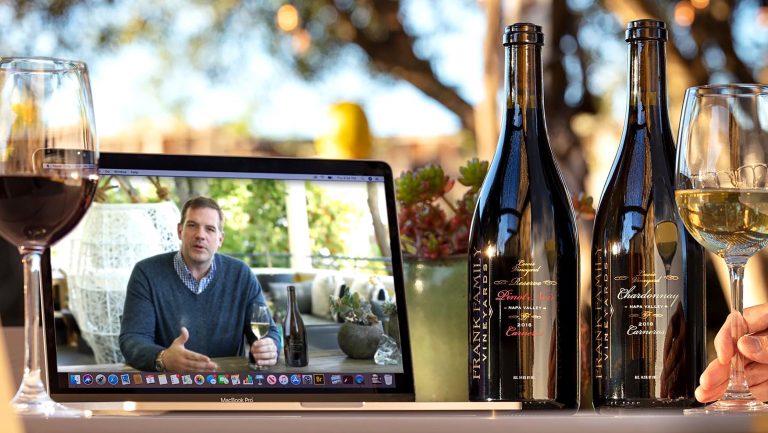The hipness of your average cocktail bar stands in stark contrast to the unglamorous reality of what it takes to move tons of product along the beverage supply chain every day. It’s been done the same way for years—with pollution-spewing diesel trucks traveling along roadways, their drivers battling traffic for hours on end.
But that scenario is about to change.
The vehicles that drive the beverage industry are about to get a major revamp, one that might just bring a touch of genuine high-tech hipness to what has until now been a pretty staid part of the business. A new breed of transportation entrepreneurs are testing fully electric and even self-driving trucks to tackle some of the beverage industry’s most pressing problems, including driver shortages, high maintenance costs, volatile fuel pricing, and safety concerns.

Don’t miss the latest drinks industry news and insights. Sign up for our award-winning newsletters and get insider intel, resources, and trends delivered to your inbox every week.
While hybrid-electric trucks have been around for some time, these new, fully electric versions represent a leap forward. The Los Angeles–based manufacturer Thor Trucks, for example, has designed a fully electric Class 8 semitruck, the ET-One, a sleek-looking vehicle straight out of the future. Thor doesn’t refer to itself as a trucking company but as a “transportation lab tackling fleet management problems.” And its two founders, Dakota Semler and Giordano Sordoni, stress their “passion for clean fuels” and “positive social impact” as much as anything else.
Thor joins the likes of Tesla, Nikola, Workhorse, the Chinese company BYD, and others in developing this next generation of electric and self-driving trucks. Even trucking industry veterans like Peterbilt, Daimler, and Cummins are announcing their own electric models.
Bringing Transport Innovations to the Beverage Industry
The sheer size of the beverage alcohol industry, along with the unique challenges of beverage distribution, makes it especially attractive to this new wave of trucking entrepreneurs. And it helps that the current limitations of electric-truck battery technology fits the nature of beverage distribution quite well.
“Thor Trucks wants to help commercial fleets of all sizes realize their capacity to go electric,” says Sordoni. “However, we believe fleets that travel about 300 miles per day and return to the same charging station each night present the clearest and most efficient economic and environmental argument for electrification. He adds that fleets in the beverage alcohol industry fit within this scope quite nicely. “Their routes are local and regional, and vehicles tend to go home to the same place each night—so finding an ideal charging infrastructure should be very feasible.”
“Electric trucks also provide a more efficient solution in routes that have many starts and stops and [in which there’s] a lot of idling. Beverage routes fit this [scheme] well,” Sordoni says. Part of the reason for that is a feature of electric vehicles called regenerative braking—every time the driver puts his foot on the brake, some of that energy is transferred back into the battery instead of just being wasted, as it is in a traditional truck.
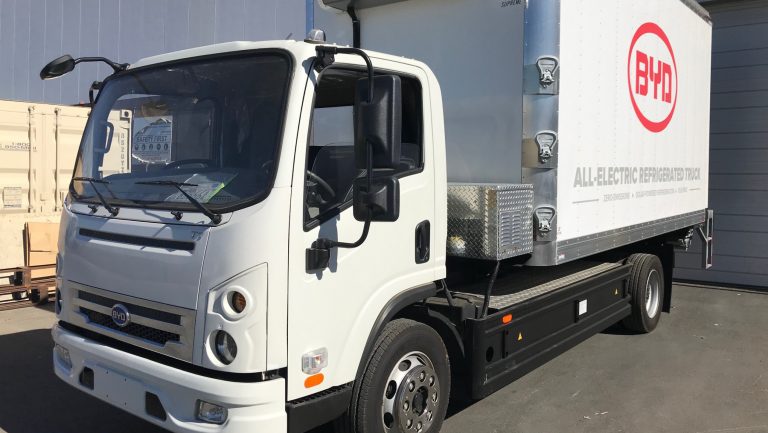
Jack Symington, a business development associate with BYD, says another thing that makes electric trucks a good fit for alcohol beverage distribution is the nature of the business itself. “If you have urban delivery,” he says, “where you’re not going more than 150 miles—you’re dropping off beer at a few locations and going back to a distribution center—it’s a duty cycle that really fits our vehicles.” He adds that in the beverage industry, a truck’s weight is also always close to the maximum allowable amount because of how heavy liquid is. “With electric trucks,” he says, “you get a very, very high torque. You get your peak torque almost at a very low speed. It feels something like driving a golf cart. Which is helpful for hauling very heavy loads in stop-and-go traffic.”
Symington says that the primary advantage of going electric for a beverage distributor is the money it saves. “The operating costs of the electric vehicle,” he says, “are substantially lower than those of diesel—anywhere from 60 to 80 percent, depending on the duty cycle.”
Sordoni adds that for short-haul distribution, Thor’s electric trucks offer “dramatically lower maintenance and fuel costs and zero diesel compliance headaches. Going electric,” he says, “offers a significantly lower total cost of ownership, in addition to being friendlier to the environment.” Sordoni says that Thor is also currently conferring with a number of beverage alcohol companies and has secured orders for its trucks from a variety of grocery and beverage distributors.
Betting on the Future
Gary Thompson, the executive vice president and general manager of Powers Distributing in Orion, Michigan, has been using hybrid electric trucks since 2009. He says he is now “very eager” to try the new, all-electric tractors.
What is it about a fully electric truck that interests Thompson? “First and foremost, there is the environmental footprint issue,” he says. “We want to reduce our environmental footprint and reduce greenhouse gas emissions. Second, it is a smoother starting option (meaning the engine is quicker and easier to start up). It’s also cleaner when we use it inside our building to load. Finally, there is the volatility in the cost of diesel fuel.”
Thompson would like to deploy some of the big electric tractor-trailers to cut down on costs. “That is the largest and most expensive use of fuel in our fleet and the vehicle that has the most expensive fuel cost,” he says. “We would use the tractors in two forms—assuming that we have that flexibility. The first [would be] short hauls to and from brewery facilities for the transportation of supplier product to us, and the second [would be] route deliveries—single-axle tractors making deliveries to our customers.”
Beverage manufacturers are also quite interested in the new technology. Anheuser–Busch, for example, ordered 40 of Tesla’s electric semitrucks in 2017, followed in May of this year by an order of 800 hydrogen-fuel-powered Nikola trucks.
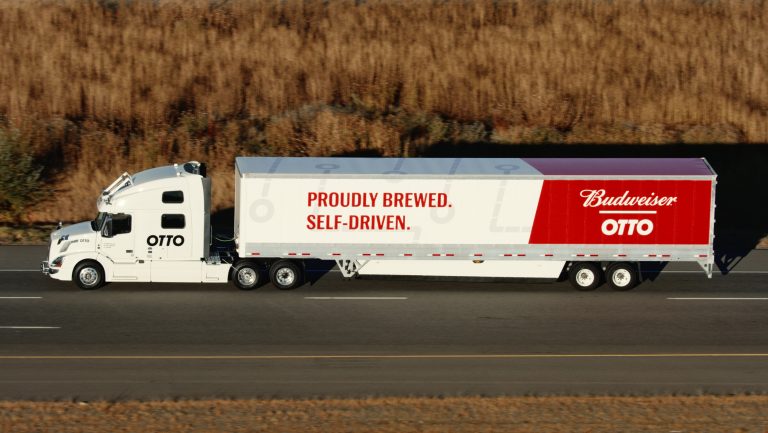
But if self-driving trucks eventually become a reality, A-B will be remembered for an historic milestone. In 2016 the company made the first beer shipment with such a vehicle. It used an Otto self-driving truck to deliver thousands of cans of Budweiser from an Anheuser-Busch facility in Loveland, Colorado, to the company’s wholly owned distributorship in Colorado Springs—a distance of 100 miles.
“At Anheuser-Busch, we are never satisfied,” says Ties Soeters, the company’s vice president of logistics procurement. “We are investing billions in cutting-edge innovations not only to improve the experience of consumers today and tomorrow but also to build a better world. We take ownership for the impact our actions have on our world, and we are optimistic that advanced trucking will help make it a better place.”
A-B will start testing the Nicola trucks in the first half of 2019 and expects them to be integrated into its dedicated fleet by 2020. And the company continues to work with Tesla to establish the an infrastructure plan to support electric trucks; Soeters says A-B is excited to see the progress Tesla has made since the two companies’ agreement in 2017.
“We are continuously looking for new technologies that will enable us to make our supply chain more sustainable, and we’ll continue to consider alternative trucking formats,” Soeters says. “In regards to the strategy of testing these different types of technology at the same time, we see [them] as complementary.” Different types of vehicles can be used for the company’s many different distribution routes and distances. “When you consider A-B’s commitment to sustainability, reducing emissions, and safer roads,” Soeters says, “investing in this type of technology was a natural fit.”
A-B is not alone in betting on the future of autonomous trucking. Ryder, one of the largest transportation and logistics providers in the U.S., is actively engaged in testing such future technologies as self-driving trucks. It has leased some of its trucks to Starsky Robotics, which has upfitted them with autonomous driving technology, and has gotten clearance to test them on runs across highways in Florida, says Melvin Kirk, the chief technology officer for Ryder System’s Fleet Management Solutions.
“I think the technical capability [of self-driving trucks] will be available in the market in the next three to five years,” says Kirk. “The technical building blocks to drive autonomously, whether it’s a passenger car or a truck, are there. We’re watching the technology, and we’ve been developing our own internal strategies of how we will deploy it—once it’s ready—into our portfolio.”
Kirk says that according to one early-stage deployment scenario, a beverage truck is dropped off by a human driver at a highway way station. There, the autonomous capability would take over for the length of the smoother highway drive. A human driver would then take control of the truck for the final leg of the trip, through the more complicated urban driving routes.
Aside from improved safety, advocates say that autonomous trucks would help the beverage industry with an ongoing driver shortage that’s driving up labor costs—if the distributor can find drivers at all.
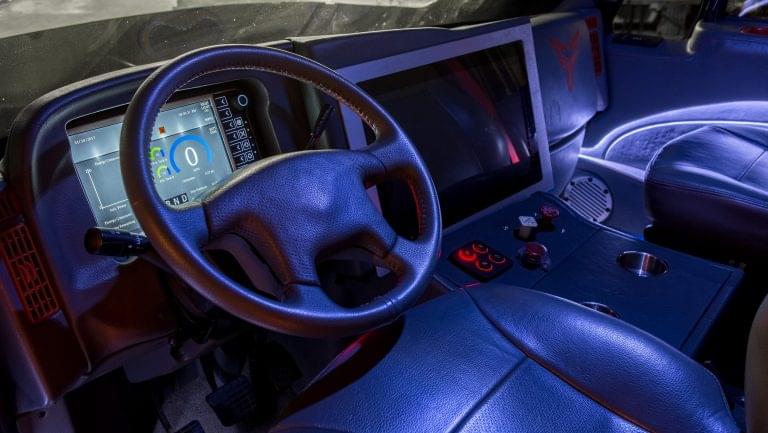
Charging Ahead
Many details must be ironed out before these futuristic trucks become widely used. For autonomous trucks in particular, government regulations and insurance policies must be established. For electric trucks, a charging infrastructure must be built out.
Chris Nordh, the senior director of advanced vehicle technology and energy products for Ryder’s Fleet Management Solutions business segment, emphasizes the need for charging infrastructure to be installed where the trucks are parked or where they reside overnight.
Thompson explains that Powers Distributing “plugs in” its hybrid electric-diesel trucks each night to keep the engines warm—and minimize wear and tear during the cold fall, winter, and spring seasons. He says that with all-electric trucks, he’d hope to “use some version of those hookups as charge stations.”
With all these advances in technology, Nordh says that industries adopting electric vehicles are facing a significant learning curve regarding issues like building out powering infrastructure. “There’s a lot of education,” he says, “a lot of people going to conferences and learning all there is to know about charging infrastructure—and coming up with a strategy for how they’re going to implement solutions.”
Nordh views the shift to these new trucking technologies as having a far-reaching impact, and Ryder is already positioning itself to be a provider of solutions in this arena. “The most important thing that’s going on in the industry right now,” Nordh says, “are these new OEMs [original equipment manufacturers] that are coming into the marketplace looking to potentially disrupt some of the traditional OEMs with these unique products.”
And all this innovation comes at a time when beverage companies, faced with a growing list of challenges, appear more than open to receiving it. With companies like A-B seeking to improve sustainability efforts across the value chain and looking to drive the drinks industry forward, these new OEMs might be the answer. As Soeters puts it, “The transport industry is one that’s prime for innovative solutions, and we strive to make sustainable transport part of our core business.”

Dispatch
Sign up for our award-winning newsletter
Don’t miss the latest drinks industry news and insights—delivered to your inbox every week.
Andrew Kaplan is a freelance writer based in New York City. He was managing editor of Beverage World magazine for 14 years and has worked for a variety of other food and beverage-related publications, and also newspapers. Follow him on Twitter at @andrewkap.

